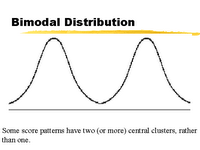 In an earlier blog, I wrote about how the Creative Class (the engine of economic growth) searches out and thrives in environments rich on the 3T’s: Talent, Technology and Tolerance. (see several blogs starting with Tolerance and Talent).
In an earlier blog, I wrote about how the Creative Class (the engine of economic growth) searches out and thrives in environments rich on the 3T’s: Talent, Technology and Tolerance. (see several blogs starting with Tolerance and Talent).
Strangely enough, we in the Caribbean do not encourage our ‘creatives’ nearly enough. Instead, perhaps out of a mistaken wish for our children to have an easier life than we had, we want our children to become doctors, lawyers, accountants and engineers.
For example, I have the distinct impression that if I worked hard, long hours to create a successful patty or roti business, then I would not want them to grow up to be “only” shop owners. Instead, I want them to do better than I did, and become doctors, lawyers, etc. Furthermore, I would probably want them to live in Toronto, New York or Miami.
This particular priority might come from a good and sincerely loving place. However, it has two severe drawbacks.
One is that it breaks up families, and from a business point of view robs the company of the lifeblood it needs to live past the owner’s death. There are numerous stories of companies in which the founder would only trust his or her family to run and own it, while encouraging the same family members to enter “easier” and “more noteworthy” professions. The result is that businesses close when there is no-one interested in running them — not the outcome that the founders had intended at all.
The second drawback is that our societies encourage their members to pursue the high profile occupations, while at the same time discouraging them from starting and running their own companies. In other words, they discourage them from becoming creatives in the economic sense — entrepreneurs.
The result is that Jamaica and other Caribbean countries are difficult places to thrive as entrepreneurs.
This is not a situation that is unique to Jamaica, however, but it is one that I am about to deal with as I attempt to set up a Jamaican company as a wholly-owned subsidiary of my U.S. company. I can’t wait… I expect to deal with a bureaucracy that is inherently inimical to what I am trying to do.
I have been “officially” informed that setting up a company in Jamaica takes only 2-3 days.
As I read this, it makes me think of that crucial distinction made by Thomas Friedman in The World is Flat, in a chapter named “The Virgin of Guadalupe.” In this chapter, he talks about how cultural icons in Mexico and Egypt that are big-sellers to locals and tourists are not actually made locally. Instead, they are made in China.
Mexican officials, he explains, are quaking in their boots because it has become cheaper and more efficient to mass-manufacture many products in China, even with the advantages granted by the North American Free Trade Agreement (NAFTA) and obvious geographical advantage of being located next door to the greatest mass-market on earth. This includes the religious and cultural icon that is sold in the thousands to Mexicsn adn foreigners alike: The Virgin of Guadelupe.
What is going on here?
Check out this quote from today’s Jamaica Gleaner:
The conundrum faced by the IDB researchers, and the Finance Minister, Dr Omar Davies, is the country’s continued weak economic growth despite its high levels of foreign direct investment (FDI) and relatively strong capital formation, averaging four per cent and near 30 per cent of GDP in recent years.
In other countries with these levels of investment, annual growth would be expected upwards of six per cent a year. Jamaica has struggled to achieve GDP expansion of two per cent or more.
Ms. Currea and her colleagues at the IDB offer an important and perhaps insightful perspective. Bureaucracy, they suggest, impose high transaction costs on business, leading to informality and anaemic growth in the formal economic sector. Indeed, prior to this recent analysis of the performance of the Jamaican economy, the IDB had estimated that the informal sector accounts for about 40 per cent of the country’s economic activity.
Basically, this is saying that it is so hard to do business in Jamaica on a formal, legal basis that it is better just to keep things small, informal and illegal because the benefits of starting an official business are just too insignificant. It makes sense that if I am interested in manufacturing my own “Virgin” that I would try to do so in a country in which it is easy to do business.
Reading this paragraph made me run for my Friedman book, and to this chapter.
In it, he talks about reform wholesale, which was an era of broad macroeconomic reform. Countries, such as Jamaica, China, Russia et al pushed their countries into more export-oriented, free-market strategies. Some of the changes that were made included “privatization of state companies, deregulation of financial markets, currency adjustments, foreign direct investment, shrinking subsidies, lowering of protectionist tariff barriers and the introduction of more flexible labor laws.”
Companies that refused to make these changes (such as North Korea) actually saw their GDP’s shrink.
However, reform wholesale, according to the strategies outlined above is no longer enough, because aggressive countries like India and China have gone well beyond the basics, to offer what he calls “reform retail”.
Reform retail involves looking at a country’s infrastructure, regulatory environment, education and culture and upgrading each one to “remove as many friction points as possible.”
Friction points.
This describes the general difference, for me, of doing business in Jamaica and the region, versus doing business in North America. In the US, as a business owner, I experienced very few friction points, relative to my experience of doing business here in Jamaica.
In a recent blog I mentioned that it took me three days to get someone to answer the phone at the Ministry of Justice. Luckily, the matter was not an urgent one or else I would have had to visit in person, and burn several hours in line waiting only to hear that my papers were still not ready, and that I should have to wait longer.
In the news recently, a judge entered a judgement against a local Jamaican government agency — the National Environmental Planning Agency — when he discovered that they had not followed their own process in granting a permit to build a 2000 room hotel in an ecologically sensitive area. (Full disclosure: my father, Dr. Barry Wade, is the chairman of the company that performed the Environmental Impact Assessment.) The judgement may have the effect of halting construction, which would not only be costly to the builders, but put two thousand workers out of a job.
This must give the investors, a Spanish company, a severe case of “bureaucracy burn” as they felt the friction of doing business in Jamaica. If you cannot trust a governmental agency to give the right permits, then who can you trust, and who can you believe? I am sure that when they are assessing where to put their next hotel, this catastrophe would rank high on their list of concerns.
Taking away friction points like these is not just a matter of throwing cash at problems, either. In fact, that might make things worse.
For example, Trinidad is currently undergoing a rapid increase in wages, due to how it is spending the high tax revenues that are accruing from US$70+ barrel oil. The government launched a series of program for the poor under the name of CEPEP — Community-based Environmental and Enhancement Programme. Unskilled workers were paid a “decent” wage to clear debris, cut bush and do other manual tasks that included plenty time to take lengthy naps (this I know from personal observation).
The result? A labour shortage in Trinidad, especially at the lowest levels. A friend of mine who recently returned to Trinidad to run a business told me that he cannot find people to hire at the wage he needs to pay, because anyone who wants to work knows that they can do so with CEPEP, with more of an emphasis on getting paid, and less on actually doing any useful work. Here in Jamaica, we have had similar programs over the years, usually occurring around the end of the year… hence the name, “Christmas Work.”
So, spending money can actually help to create new “friction points.”
A study undertaken by the IFC in 2004 called Doing Business in 2004 has actually documented the differences. They have also updated their information on their website to 2006.
They measured how difficult it is to do the following basics, all of which I have had to do as a company owner:
- start a business in terms of local rules, regulations and license fees
- hire and fire workers
- enforce a contract
- get credit
- close a failing business
In Jakarta, Indonesia an entrepreneur must deposit minimum capital of three times the per capita income, and then wait a total of 186 days before he can start business officially.
In Panama City, a company owner finds it easier to keep underperformers on staff than it is to hire a high performer, due to union pressures and local laws.
A trader in the UAE must undertake 27 procedures and endure 550 days to resolve a payment dispute in court.
An entrepreneur in Ethiopia cannot access credit to expand her company because there are no credit information registries. She cannot use accounts receivable as collateral, due to local laws.
A businessman in India cannot make a profit and goes out of business. Due to the 10 year-long process of going through bankruptcy, he absconds leaving his workers, bank and tax agency with nothing.
It takes 2 days to start a business in Australia, 203 days in Haiti and 215 in the Democratic Republic of Congo.
The IFC report notes that excessive regulation tends to hurt most the very people it is meant to protect. The rich and well-connected just buy or hustle their way around onerous regulations.
It is no mistake, and quite sad, that the poorest countries have the most friction points. Perhaps they were even created by well-meaning government bureaucrats, but the result is the same — a weak economy that discourages the entrepreneur.
When Michael Manley gave his famous “five flights a day” speech that lead in part to the massive migration of Jamaica’s creative class, he had no idea what he was really doing — laying the seeds of poverty for years to come.
We Jamaicans (and I would say that this extends to the CSME countries) must start to critically examine our own thinking, and what we tell ourselves, and what we tell our children. I cannot believe that we consciously conspired to chase off our creative class, and encouraged our children to migrate and enter “high-profile” professions. We also did not consciously intend to teach them them to avoid nitty-gritty entrepreneurship.
I remember a few years a remark that was shared with me about a T-shirt company I had started: “look at how him get big Ivy-League degree and all him can do now is sell T-shirt!”
In spite of our unconscious actions, and their consequences, today we can consciously decide to teach our children the virtues of starting companies, staying to fight for our country’s welfare, returning to make a contribution, taking down barriers to business that make no sense, and see that these actions are critical to nation-building.
And this is not nation-building for the “big man”. Instead, this is mostly about that little old lady who sells sweeties at the corner from a box on top of a stone, who at some point dreamed of owning a store, but when confronted with the friction points that she would have to overcome, simply gave up. As a result, she remained poor.
In the US, it is the little old ladies who start small businesses that are the engine of their growth, according to this news report:
U.S. entrepreneurs are often described as one of the primary drivers of the nation’s economy. For starters, small outfits create some 75% of all new jobs, represent 99.7% of all employers, and employ 50% of the private workforce, according to the Small Business Administration.
That little old lady is one of the many creatives that we as a people need to stop thwarting.
P.S.
Here is Jamaica’s ranking in terms of its relative Ease of Doing Business (out of 155 countries.)
Overall Ranking: — 43
- start a business in terms of local rules, regulations and license fees — 10
- hire and fire workers — 82
- enforce a contract — 39
- get credit — 95
- close a failing business — 92
 I am reading a book by a Cornell class-mate of mine called Steve Shapiro. The book is called “Goal-Free Living.”
I am reading a book by a Cornell class-mate of mine called Steve Shapiro. The book is called “Goal-Free Living.”








